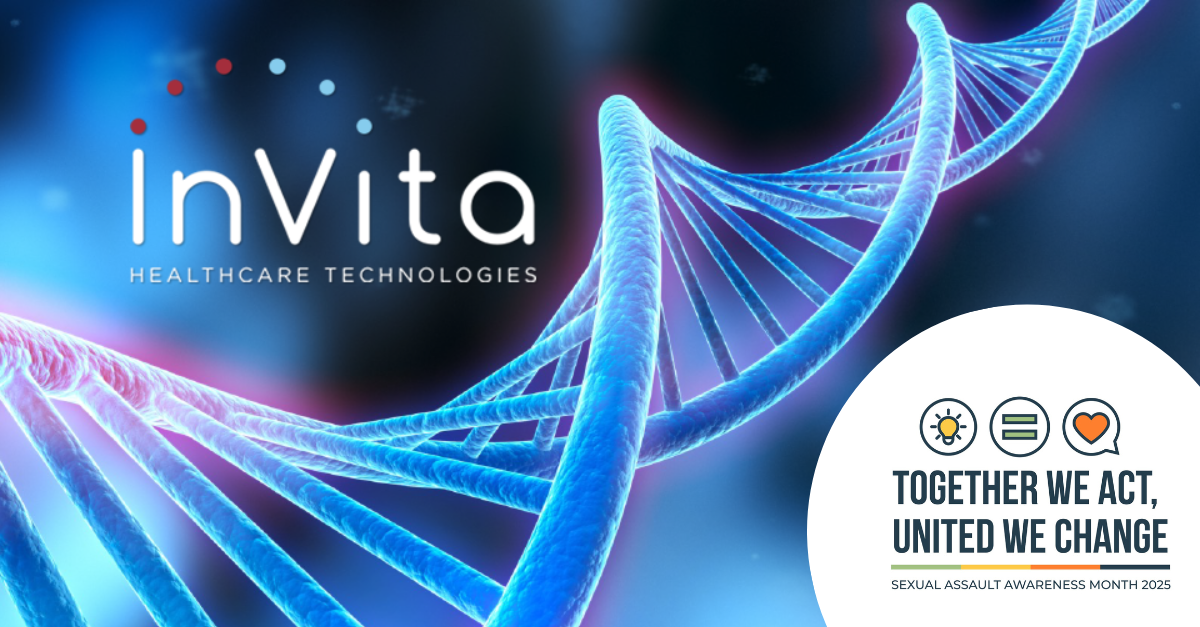
Creating safer communities begins with the power of working together. During Sexual Assault Awareness Month (SAAM), we honor those working to raise awareness, amplify survivor voices, and drive change to prevent sexual abuse, assault, and harassment. One transformative example of this collaboration is rape kit reform – a movement that has reshaped how sexual assault evidence is tracked and investigated across the U.S., led by advocates, forensic professionals, law enforcement agencies, and policymakers.
Thanks to years of collaboration, thousands of previously unsubmitted sexual assault kits (SAKs) have been tested. DNA profiles uploaded to CODIS have generated hits that identify suspects, link serial offenders, and reopen cold cases – bringing long-overdue justice to survivors.
Trusted Statewide SAK Tracking Solution for Survivors and Stakeholders
A key pillar of rape kit reform has been the implementation of Sexual Assault Kit (SAK) tracking systems – essential to eliminating the backlog and ensuring every kit is tracked from collection through forensic analysis to final storage. Successful statewide deployment requires collaboration across legislative, procurement, implementation, and support teams to ensure transparency and accountability.
Track-Kit™ is the only complete SAK tracking solution built to serve both stakeholders and survivors, delivering accountability, transparency, and information-sharing. Developed in partnership with the Michigan State Police after the discovery of over 11,000 untested kits in a Detroit warehouse, Track-Kit is a secure, cloud-based turnkey system that meets jurisdictional requirements and gives survivors direct access to their kit’s status throughout the process. Currently used by 15 states to track one-third of U.S. sexual assault victims, Track-Kit is positioned to expand its client community, with efforts underway to bring the solution to four additional states in 2025.
Forensic Science Hit Outcome Tracking: Managing the Influx of CODIS Hits
As more states implement Sexual Assault Kit tracking systems, the volume of tested kits – and DNA profiles uploaded into CODIS – continues to rise, driving a surge in forensic hits. While each hit offers investigative potential, the challenge lies in managing this influx and ensuring every lead is pursued to resolution.
Forensic labs work tirelessly to link crimes to potential suspects – analyzing evidence, obtaining forensic matches, and notifying investigators. Yet, due to a manual follow-up process, they're often unsure whether those hit notifications are received or acted upon. Verifying hit status requires sorting through case files, making phone calls, and sending emails – an approach that is time-consuming, error-prone, and can delay investigations – and in this line of work, those delays can cost lives.
To address this critical need, InVita partnered with the Alaska Department of Public Safety to develop the Forensic Science Hit Outcome Tracking System – a first-of-its-kind solution based on recommendations from the Alaska’s SAKI Working Group. Designed to close gaps in tracking, managing, and reporting CODIS hit outcomes, the system improves accountability, follow-up, and interagency communication across laboratories, law enforcement, prosecutors, and policy teams. It tracks the full lifecycle of a hit – from notification through confirmation, investigation, and resolution – enabling investigators to monitor status, search linked profiles, and uncover case connections that strengthen investigations and support successful prosecutions.
Advancing Public Safety Through Purpose-Built Forensic Solutions
As we recognize Sexual Assault Awareness Month, we’re reminded that meaningful progress happens through collaboration. These advancements reflect a collective commitment to supporting survivors, strengthening investigations, and creating safer communities for all. InVita is proud to contribute to this ongoing effort with purpose-built solutions like Track-Kit and the Forensic Science Hit Outcome Tracking System – developed to meet the evolving needs of the forensic community.